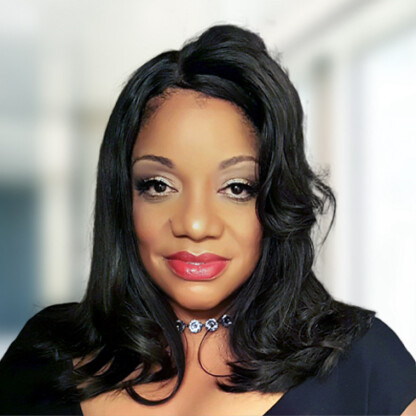Supreme Court Grants Certiorari to Review the Standard for Patent-Eligibility Under 35 USC § 101
Today, the U.S. Supreme Court agreed to hear an appeal concerning the standards used to determine whether a process is eligible for patent protection under 35 USC § 101. Bilski v. Doll, U.S., No. 08-964, 2009 WL 221232 (June 1, 2009) (granting certiorari). Last fall, the U.S. Court of Appeals for the Federal Circuit held that a process is patent-eligible under § 101 if: “(1) it is tied to a particular machine or apparatus, or (2) it transforms a particular article into a different state or thing.” In re Bilski, 545 F.3d at 943, 954 (2008). The Supreme Court’s review of this case will play an important role in defining whether business methods and other computer-implemented processes may be patented. It is difficult to predict whether the Supreme Court’s grant of certiorari in Bilski signals an intent to significantly narrow or expand the scope of patent eligibility under 35 U.S.C. § 101. Recent statements from the Supreme Court indicate that the Court will likely consider the broader question of the patentability of business method patents.
A. The Supreme Court’s Recent Interest in Patentable Subject Matter
Today’s grant of certiorari is another example of the increasing interest the Supreme Court has shown in key substantive areas of patent law. Likewise, Congress and other federal agencies also continue to grapple with these same issues through patent reform legislation and agency enforcement actions. As this recent activity has shown, the Supreme Court is clearly interested in clarifying substantive areas of patent law, including the boundaries of what subject matter is eligible for patent protection.
In Bilski, the Federal Circuit indicated that it sought to stay true to Supreme Court precedent in outlining the test for patent-eligible subject matter for processes. Nevertheless, the Supreme Court has apparently determined that it wants to consider whether the Federal Circuit has succeeded in its stated objective. Reading the tea leaves of recent Supreme Court patent decisions in Metabolite and eBay, the Court has already shown a strong interest in this issue. The patent in the Metabolite case was directed to a process for helping to diagnose deficiencies of two vitamins, folate and cobalamin. The patent was found to be not invalid and infringed at trial, and the verdict was upheld on appeal by the Federal Circuit. The Supreme Court granted certiorari to answer whether the patent was invalid on the ground that it sought to “claim a monopoly over a basic scientific relationship.” The Court, however, eventually dismissed the petition as being improvidently granted because the defendant did not specifically refer to 35 U.S.C. § 101 as a basis for its appeal. In a dissent from that dismissal, Justices Breyer, Stevens, and Souter asserted that the case should be considered and decided. Indeed, the dissent identified clarification of the scope of patentable subject matter as an “important consideration of the public interest” and indicated their belief that the law in this area should be clarified “sooner rather than later.” Lab. Corp. of Am. Holdings v. Metabolite Labs., Inc., 548 U.S. 124, 134 (2006) (Breyer, J., dissenting). Based upon the dissenting opinion, the patent in Metabolite would have been invalidated as being directed to “an unpatentable ‘natural phenomenon.’”
In the recent eBay decision, several justices raised some questions about the value of some business method patents. Specifically, in referring to the possibility of granting injunctions for some business method patents, Justices Kennedy, Stevens, Souter, and Breyer commented, “injunctive relief may have different consequences for the burgeoning number of patents over business methods, which were not of much economic and legal significance in earlier times. The potential vagueness and suspect validity of some of these patents may affect the calculus under the four-factor test.” eBay Inc. v. MercExchange, L.L.C., 547 U.S. 388, 397 (2006) (Kennedy, J., concurring). The Supreme Court’s comments in Metabolite and eBay could give some indication of how at least some justices may view Bilski.
B. The Questions Presented to the Supreme Court for Review in Bilski.
The petition in Bilski presents two questions for consideration by the Supreme Court:
- Whether the Federal Circuit erred by holding that a “process” must be tied to a particular machine or apparatus, or transform a particular article into a different state or thing (“machine-or-transformation” test), to be eligible for patenting under 35 U.S.C. §101, despite this Court’s precedent declining to limit the broad statutory grant of patent eligibility for “any” new and useful process beyond excluding patents for “laws of nature, physical phenomena, and abstract ideas.”
- Whether the Federal Circuit’s machine-or-transformation test for patent eligibility, which effectively forecloses meaningful patent protection to many business methods, contradicts the clear congressional intent that patents protect “method[s] of doing or conducting business.” 35 U.S.C. §273.
The second question shows that the Court also may consider not only the broad question of the standard for patent-eligibility, but more specifically the patent-eligibility of business method patents. In its en banc decision, the Federal Circuit explicitly declined to adopt a broad exclusion against business method patents. Bilski, 545 F.3d at 960. The Supreme Court appears poised to directly tackle business method patents, and whether “methods of doing or conducting business” somehow guide the breadth to be afforded the term “process” as used in § 101.
C. Potential Industry and Patent Litigation Impact
The Supreme Court’s decision in Bilski will likely have a broad impact on many industries, including the software, financial services, insurance, biotechnology, and others. The decision also will affect companies that rely heavily on computers in their customer-facing business operations, even if those companies are not in the software industry per se.
If the Supreme Court narrows the scope of patent-eligible subject matter under 35 U.S.C. § 101, the impact on existing and future patent litigation could be significant. This would be especially true if the Court places any particular focus on business method patents. In recent years, there have been a large number of lawsuits brought against corporations based upon their business methods. These suits cover a wide range of business activities in all fields, most notably general methods of doing business over the Internet. Certainly, patent holders and applicants will keep a close eye on how the Supreme Court decides the Bilski case because it has the potential to alter the patent landscape in this area.
Briefing on the merits should be completed by September 2009. A decision in the case is likely to be handed down sometime in the first half of 2010. In the meantime, companies should consider continuing to proceed with filing patent applications, even if those patent applications are directed to subject matter that may not be patent-eligible under the “machine-or-transformation” test. Any such patent applications filed now will likely be pending long after June 2010, and will be analyzed by the United States Patent and Trademark Office (USPTO) under whatever new standard is formulated by the Supreme Court. At the same time, efforts should be made to prepare patent application claims that comply with the machine-or-transformation test to the extent possible.
Legal News Alert is part of our ongoing commitment to providing up-to-the-minute information about pressing concerns or industry issues affecting our clients and colleagues.
If you have any questions about this alert or would like to discuss the topic further, please contact your Foley attorney or the following:
Sharon R. Barner
Chair, Intellectual Property Department
Chicago, Illinois
312.832.4569
[email protected]
Pavan K. Agarwal
Chair, Electronics Practice
Washington, D.C.
202.945.6162
[email protected]
Authors:
David G. Luettgen
Milwaukee, Wisconsin
414.297.5769
[email protected]
C. Edward Polk, Jr.
Washington, D.C.
202.295.4634
[email protected]


